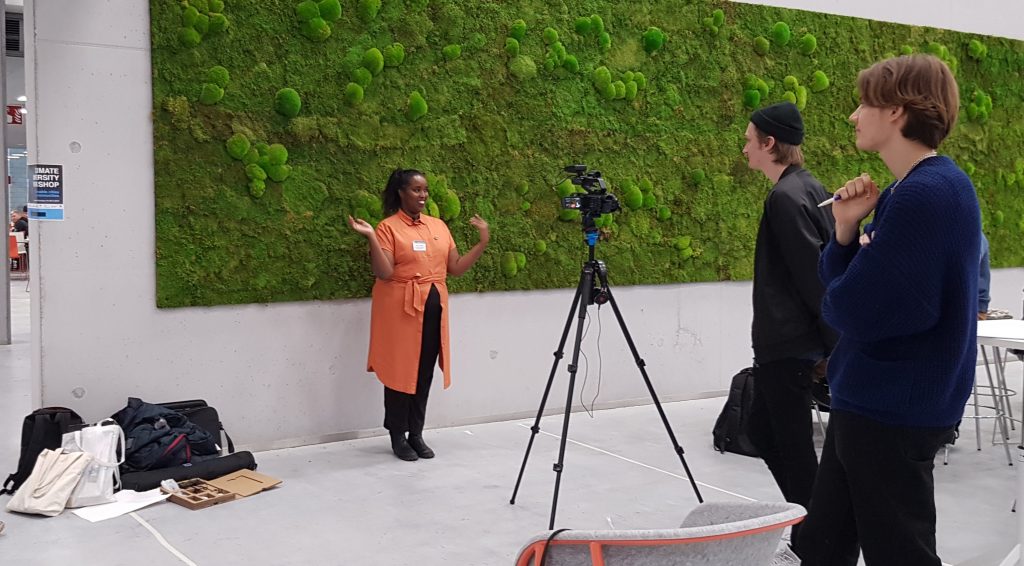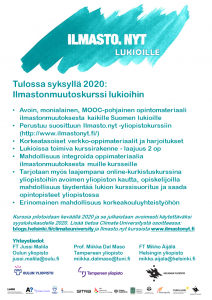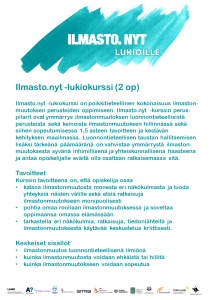Climate University workshop in Metropolia UAS campus in Myyrmäki, Vantaa on 19–20.11.2019
– Environmental crisis is a reality, there is no use to deny it or lament. Solutions exist – we need optimism and quick action now, stated Antti Tohka, director of Metropolia’s Clean and Sustainable Solutions innovation hub, in his opening remarks. Nimo Samatar from student union Metka applauded Climate University for its important work, and challenged Metropolia other universities to do more. Laura Riuttanen, the Climate University coordinator, summarized the project and its activities.
How can cities and communities define, measure and develop sustainability? Pentti Viluksela presented four tools that could be useful. Ronny Rantamäki shared the initiatives and experiences of City of Vantaa in bringing together different players and stakeholder to develop resource-wise and sustainable solutions, for example in urban food and in circular economy. Redono Oy is a pioneer in sustainable food solutions; CEO Henri Laine illustrated many opportunities in this field, and presented an impressive network of partners, including the #urbanfarmlab of Metropolia.
Metropolia student Stefan Sjöholm analysed the Hinku project (Hiilineutraalit kunnat, carbon-neutral communes) from the point-of-view on Kirkkonummi, one of the owner municipalities of Metropolia. After a quick jump to the equator, professor Jukka Käyhkö from University of Turku inspired the audience by showing how Tanzanian students are mobilized to map development challenges in urban areas, and improve the resilience in Dar es Salaam and other cities. Finally, operations manager Tiila Korhonen from HSY (Helsinki region environmental services) outlined the journey of change of Ämmässuo, the largest Nordic landfill in the 1980s towards today’s highly effective eco-industrial centre.
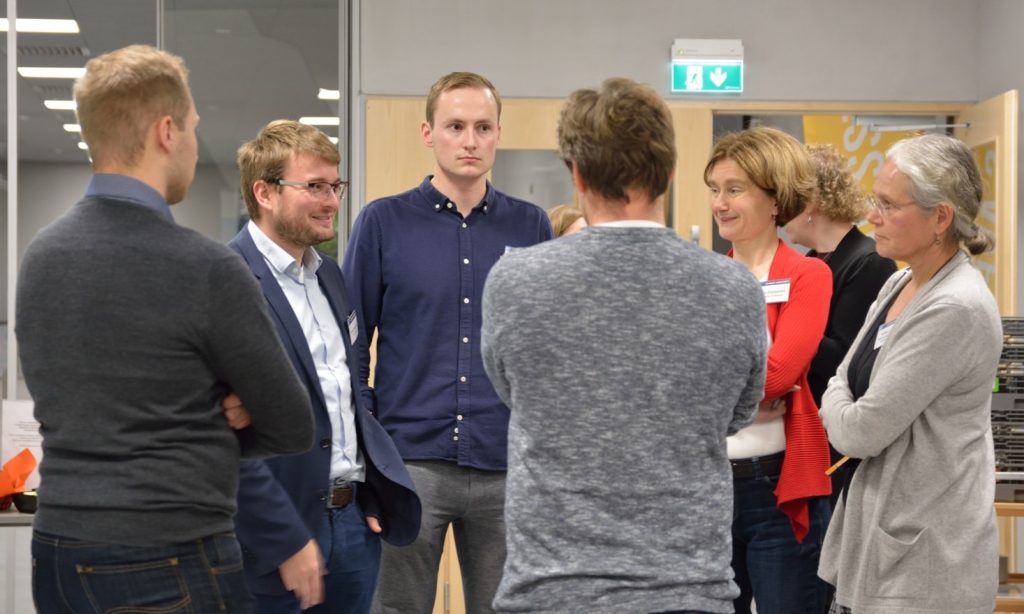
Formula cars and crickets
After the lunch, the participants visited three labs in the Myyrmäki campus. In the automotive lab, the Sniffer project showcased an air quality measuring and analysis lab on wheels, and in the new Ultimate Condition Room, cars and their components, like batteries, can be tested in temperatures ranging from –45 to +60°C.
In the urbanfarmlab, companies and students work together to pilot different urban farming techniques (hydroponics, aeroponics) and crops (greens, crickets, hops, microalgae) using industrial sidestreams as fertilisers.
Next door, a 20-strong all-student team is working on next year’s electric racer car. Students from different backgrounds design and construct the racer with support and collaboration of industrial partners, and compete against other European student teams in summer 2020.
Climate challenge!
Participants were encouraged to devise and present climate challenges to their chosen recipients. Eight short video challenges were recorded and screened by the Metropolia– University of Helsinki video team. See a separate blog posting!
Expertise and cooperation
Day 1 was concluded with a panel discussion on theme What expertise and what kind of collaboration do we need to solve the climate and sustainability challenges? The panelists, Ronny Rantamäki (City of Vantaa), Risto Makkonen (Finnish Meteorological Institute), Paavo Tertsunen (UseLess Company), Janna Pietikäinen (University of Helsinki) and Stefan Sjöholm (Metropolia) elaborated on the issues presented by the moderator Riitta Lehtinen (Metropolia) and the online questions collected from the audience.
At the end of the first day, we raised a toast for the successful first year of Climate University.
New MOOCs took a leap forward
Three of the new Climate University MOOCs were at focus on the second day of the workshop. Project coordinator Laura Riuttanen outlined the existing MOOCs (Climate.now, Leadership for Sustainable Change, Circular.now) and the work done so far on the new courses. The new MOOCs were presented and processed in a World Café poster session and in two separate workshop sessions.
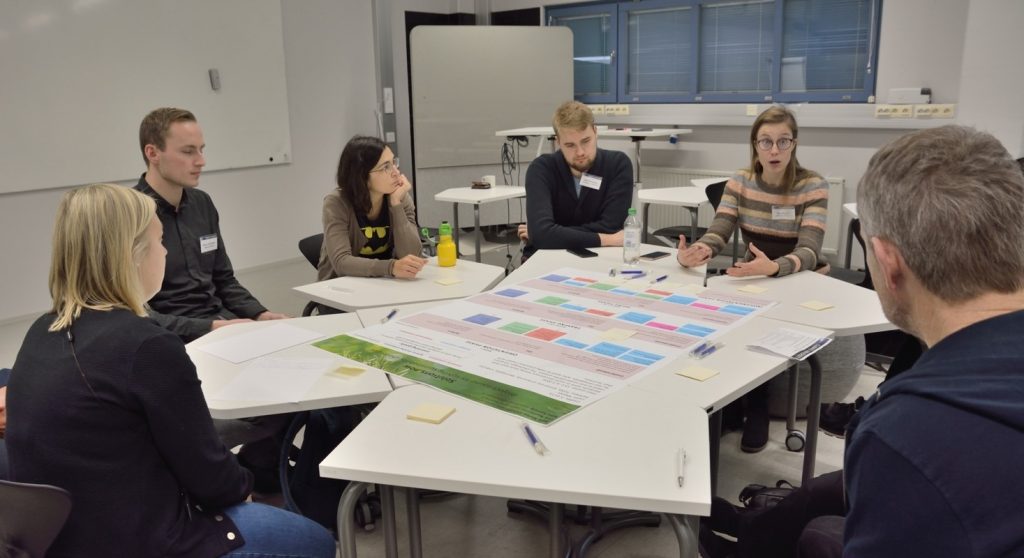
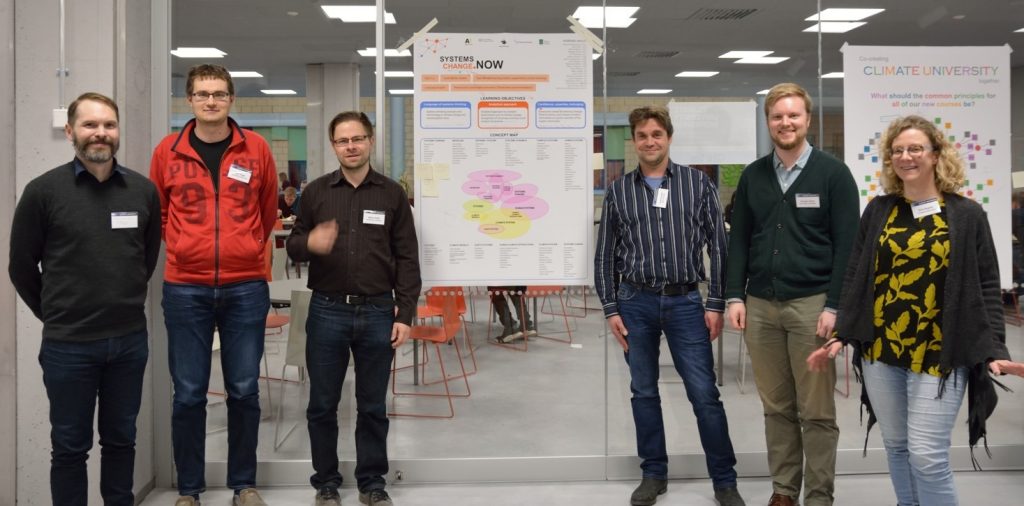
- Sustainable.now – a Bachelor-level course for sustainable development and climate challenges and solutions
- Solutions.now – a Master level project course for solving climate and sustainability challenges of companies and organizations
- SystemsChange.now – a Master-level course on using systems thinking and multidisciplinary approaches to contribute in societal change
In the closing discussion, feedback was given by the CU steering group member Risto Makkonen and other participants. Although the work is progressing well, the ultimate success of the project depends on how well the courses are integrated in the curricula of the universities and taken into use in different levels and contexts.

Text: Pentti Viluksela
Photos: Emmi Myllylä

